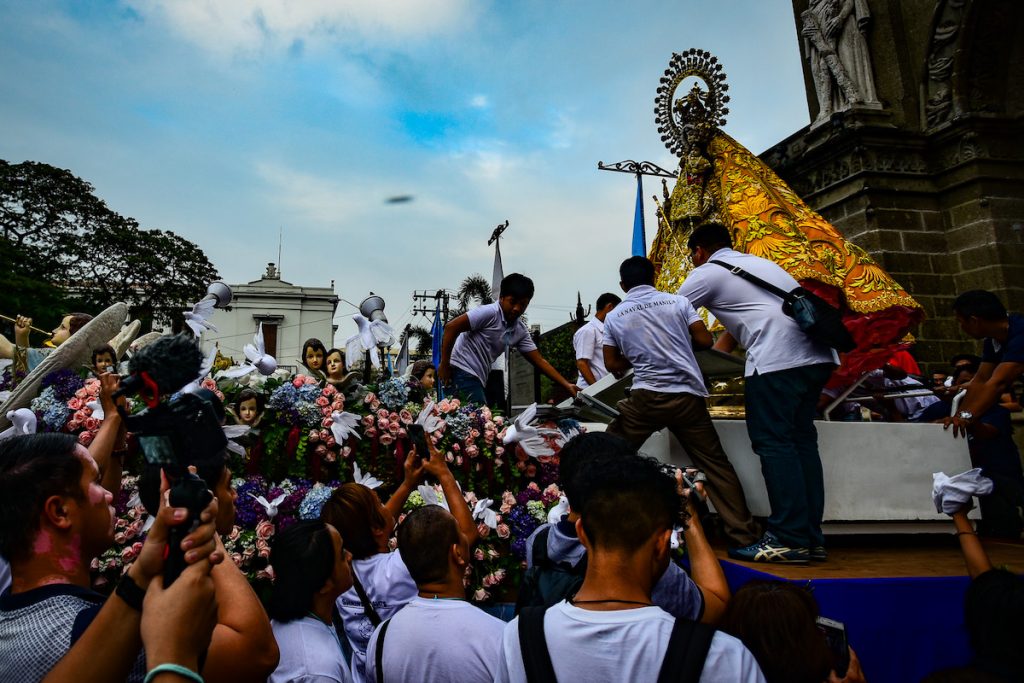The appointment of Cardinal Luis Antonio Tagle of Manila as head of the Congregation for the Evangelization of Peoples in Rome has left a void in the Philippines.
There are hopes that Pope Francis will make a Solomonic choice for a new Manila prelate to replace Cardinal Tagle.
Whoever will be named as the new archbishop of Manila is expected to figure prominently in the last two years of the administration of President Rodrigo Duterte, whose term ends in 2022.
The new prelate will have to provide counsel to the Catholic faithful and the whole nation as it elects a new president that very same year.
Duterte has repeatedly berated and attacked Catholic bishops and Catholic teachings, perhaps to ride on public disenchantment with church leaders.
It might also be a way for the president to limit whatever “damage” church leaders have done to his “war on drugs,” his alliance with the family of the former dictator, his pro-China stance, and his government’s attacks on indigenous peoples and the poor.
Pope Francis has not directly spoken on Philippine issues, but he could telegraph his views by the appointment of a new Manila archbishop.
There is always the possibility that the pontiff will appoint an outspoken new archbishop who could be a conscientious voice in the face of the many challenges the country faces.
Progressive? Maybe.
Although right now, it would be a blessing if the new ordinary of Manila would be a champion of the poor, whether those living in shanties or the displaced indigenous peoples who sometimes come to Manila to challenge state policies on the environment, a key issue trumpeted by the pope.
The pope could send a pastor to Manila who could minister to the families and survivors of extrajudicial killings that have torn tens of thousands of families apart. More importantly, such an ordinary could help these families work for justice.
Popes have appointed a good number of bishops who turned out to be activists and progressives, especially during the time of the Marcos dictatorship. They dutifully served their dioceses and provided moral leadership.


Many such bishops, like Antonio Fortich of Bacolod, would be acknowledged as heroes. Cardinal Jaime Sin of Manila figured prominently in the people’s uprisings of 1986 and 2001.
Ferdinand Marcos and his successors also had conservative bishops who helped legitimize problematic and controversial policies.
A few would be involved in scandal, as in the case of the “Pajero bishops” under Gloria Macapagal Arroyo.
The bishops’ conference of the Philippines has also tried to influence public policy to be in accord with church teachings, such as opposing the reproductive health bill and the anti-discrimination bill, as well as the bill legalizing divorce.
These moves by conservative bishops have alienated them from many of the faithful, who support positive and progressive measures, and continue to hope that their Catholic faith will be relevant to the changing times, welcoming, inclusive, and pro-poor.
Pope Francis’ appointment of a new prelate for Manila will come at a time when the Philippine Church celebrates the 500th anniversary of the arrival of Christianity in the country.
The same Church faces many opportunities for ecumenical and interfaith dialogue with other Christian traditions and communities, Islam, and other faiths in the country.
Because he has visited the Philippines and met with Filipinos in 2015, the pope should already have a perspective on what the episcopacy of Manila needs right now.
The Church of Manila has become smaller after the rise of suffragan dioceses, but it continues to have an outsized and prominent place among the faithful.
We may not have a primate of the Philippines, and it is doubtful that bishops would agree to it, but the archbishop of Manila is the closest we have to one.
The Archdiocese of Manila is Asia’s oldest diocese, dating back to the Spanish colonization of the islands, when Manila started as a parish and later a diocese under Mexico.
Manila was elevated into an archdiocese in 1595, but it was only in 1946 that the Holy See appointed the first Filipino bishop for Manila.
It happened decades after Filipino priests started calling for the “Filipinization” of the clergy. It became a key demand and aspiration of the 1896 Philippine revolution against Spain.
Between 1896 and 1946, or roughly 50 years, a revolution engulfed Manila and the rest of the country, a new colonizer took over, and the country later achieved independence.
Tonyo Cruz is a Filipino blogger, newspaper columnist, and convener of the media and arts alliance Let’s Organize for Democracy and Integrity. The views and opinions expressed in this article are those of the author and do not necessarily reflect the official editorial position of LiCAS.news.


